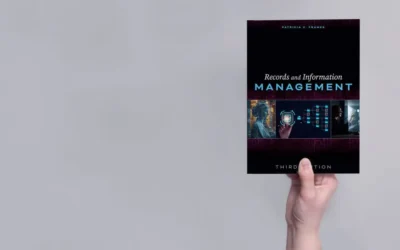Building Skills as Virtual Librarians
Miriam Kahn, MLS, PhD
Learning the ins and outs of a database, new catalog, or online resources is imperative. Understanding the idiosyncrasies of the search system is essential. Mastering communication skills is the key to efficient training and data retrieval.
Ultimately, we build skills to improve our own reference and communication capabilities, and, in turn, to improve our clients’ ability to locate desired information.
Assisting patrons with their research needs is the key mission of any information professional. Skills for special librarians who interact with researchers in virtual modes include excellent communication (listening, teaching or instruction), and writing. Information professionals must maintain and polish their skills to stay current, to remain relevant, and to assist clients.
Listening
Active listening is key to helping customers do their jobs well and retrieve requested information efficiently. Focusing on their needs is imperative, requiring the elimination of distractions. Paired with verbal interchange and discussion of the topic, active listening helps both parties drill down to the essential information needs.
Active listening includes focus, verbal exchange, and agreement on the topic to explore, all before initiating the search. Information professionals recognize it is harder to listen when people are not in same room.
- Eliminate all distractions whether engaging in a written exchange via e-mail and chat boxes, just as you would during a face-to-face reference interview.
- Reiterate and describe the research question using your own words.
- Drill down to synonymous and controlled vocabulary terms when discussing the research question.
- Maintain focus on needs of the patron rather than jumping into the search or drawing conclusions.
Practicing active listening and response means puzzling out the research question together and engaging in verbal give-and-take while parsing the project. Conclude communication and reference interviews with a list of topic lists to search and additional avenues to explore.
Teaching and Instruction
Teaching and instruction are constant tasks especially when working in a virtual mode. Skills for special librarians include gaining fluency in the basics of research resources—this is key for both information professionals and their clients. Begin learning a new online resource using practice searches, exploring the help features, and then exploring the unique features of the database.
- Practice teaching a technique in a few succinct moves.
- Pare down the process and describe it using screen shots and streamlined steps.
- Remove jargon from search steps and techniques.
- Slow down and explain how perform the search, don’t just do.
Offer synchronous video channels through WebEx and Skype during onboarding and requested training sessions. Shared screens and synchronous training using desktop and mobile devices are the perfect way to offer virtual training and are included in virtual meeting software.
For virtual training sessions:
- Develop “just in time” training modules that integrate into standard help features.
- Limit training videos to single topics.
- Design and record mini-help modules of one to two minute duration accompanied by succinct written instructions.
- Establish a library of training videos available through easy to find visible links.
Implement routines to automatically record training sessions on searching techniques and project strategizing. Make these training recordings available as podcasts and video presentations for use by clients through the organization’s intranet.
Written communication
Frequent communication keeps the virtual library visible, especially when it isn’t located in the same building or within the organization.
Practice writing short, informative descriptions of new and established reference resources. Limit e-mail frequency while keeping clients aware of new developments and services.
Write blog posts on specific topics, post regularly, a minimum of once a day. Use a group of informed contributors. Build in a subscription service with e-mail notification of new posts, offer a digest mode when the software permits.
Blog posts should include useful help tips and techniques for effective and efficient use of research tools, internal and external databases, catalogues, and online accessible resources.
- Add historical background where necessary or informative, perhaps as a subpage.
- Divide each post with subheadings or subtopics.
- Limit reading time to five minutes or less.
- Include images where available, especially for clarification.
- Intersperse discussions of online resources with reviews of paper reference materials and publications, useful websites, particularly statistics and current data releases.
Summing it up
Polishing and expanding communication skills, including active listening, teaching, and writing are essential for working as an information professional. Whether the library is physically located in the institution or is accessible in a virtual mode, solid communication skills must be regularly honed and practiced to serve all our patrons.
My next blog post will cover how information professionals can build good work habits.
Miriam Kahn, MLS, PhD
Miriam B. Kahn, MLS, PhD provides education and consulting for libraries, archives, corporations, and individuals. See Miriam’s pieces for Lucidea covering library technology and skills for special librarians. For more on how to succeed in a virtual library, please read this post on librarians and versatility in virtual library settings.
Similar Posts
Interview with Author and Librarian Dr. Jae Rossman on Special Collections and Archives
Dr. Jae Rossman wrote Access to Special Collections and Archives, available now from Rowman and Littlefield. The book is an excellent resource for special librarians who work with special collections and archival materials.
Interview with the Author: Dr. Patricia Franks on Records and Information Management
Dr. Patricia Franks is the author of Records and Information Management, now with an upcoming third edition to be published by ALA Neal-Shuman in the spring of 2025. My interview with her follows.
Are There Drawbacks to Using GenAI for Research?
Researchers must take responsibility for understanding how GenAI works and closely review literature search results before relying on them. Let’s take a look at three major drawbacks for researchers and special librarians to consider when leveraging or recommending GenAI platforms.
Researching with GenAI: Tools & Tips for Special Librarians
When GenAI first became widely available, there was a great deal of discussion about how it would “hallucinate”—that is, make up content and sound very sure of itself when doing so.




Leave a Comment
Comments are reviewed and must adhere to our comments policy.
0 Comments